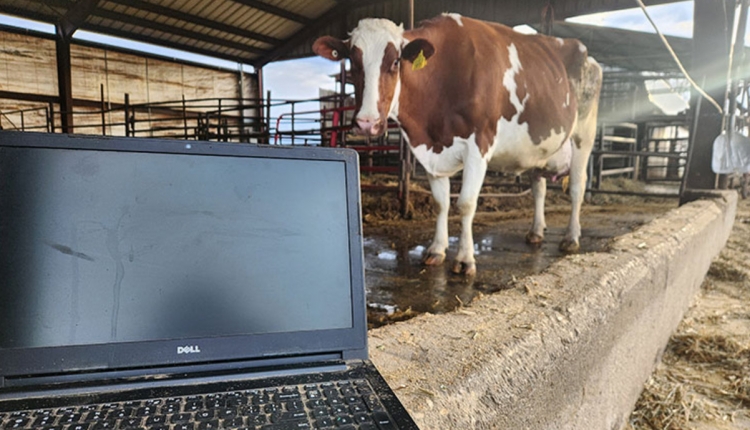Holstein Association USA recognizes the importance of identifying heritable, sometimes undesirable, unique genes in Holstein cattle, to provide breeders with the tools they need to make informed breeding decisions. Hoard's has dedicated a page in the May 25, 2011, issue to Brachyspina, but, more recently, specific bulls have been identified.
Brachyspina syndrome is a congenital inherited lethal defect in Holsteins that causes embryonic death, stillbirth, and other deformities. Calves are generally stillborn and have severely reduced body weight despite having a normal or prolonged gestation period. When evaluating a stillborn calf, you will notice a shortening of the spine, and the limbs are long and thin.
Brachyspina is a recessive trait, and, to be an affected calf, both sire and dam must have passed the recessive gene to their offspring. If only one parent transmits the recessive gene, the resulting calf will be just a carrier and will show no outward signs of being a carrier. While gaining attention, it is estimated that only 6 percent of the Holstein population are carriers. Carriers are identified with *BY, while those identified as non-carriers are labeled as *TY.
Registered Holstein bulls have been reported as carriers (BY) or tested non-carriers (TY) for Brachyspina. We have included several files. The first one lists all tested bulls that are carriers of Brachyspina (BY). This list will continue to grow as results on new bulls are added. The next file lists all bulls tested, with the carriers, listed first. Click here to download all bulls tested. It is broken into groups alphabetically, 39 pages). If a bull is not on this list, he has not been tested or tests are pending.
Holsteins have the lowest incidence of inbreeding in relation to the other dairy breeds, but that does not protect the breed from undesirable recessives like Brachyspina from surfacing and affecting several bloodlines. While no one likes to see pregnancy loss or a stillborn calf, at least we may be able to take some consolation in knowing that genetics and not management could have been the culprit.
If you want to test your animal, (male or female) the cost is $100 per animal. A list of frequently asked questions prepared by the Holstein Association can be downloaded here. For more information, call Holstein Association USA customer service at 800.952.5200.









